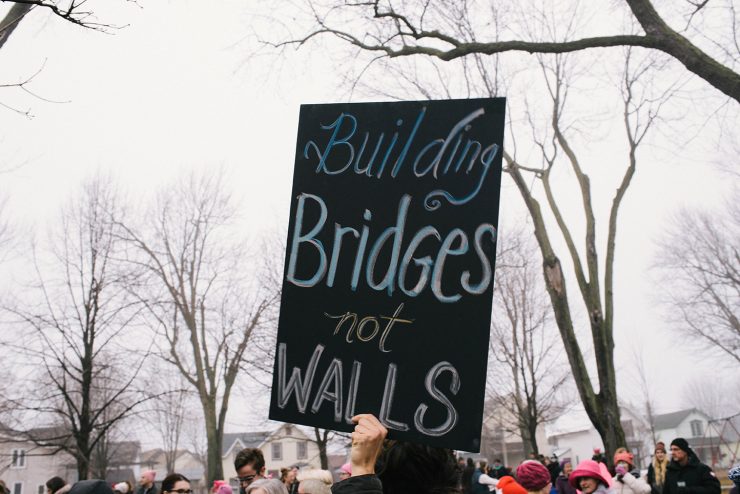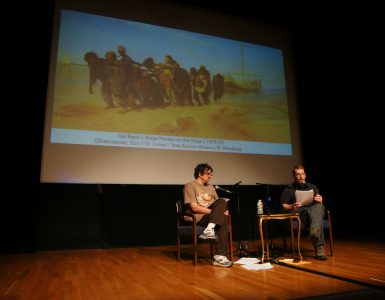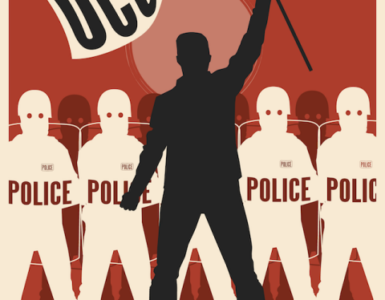(Transcript of a talk given to the Building Bridges Not Walls event in Kingston, February 2, 2017.)
Thank you all for coming tonight.
I’m here to talk about resistance and authoritarianism, because we need to get comfortable using both of those words.
A defining feature of authoritarians—whether they are in the far right wing or outright fascists—is that they do not care for discussion or dialogue. They do not care about objective facts. They believe that because they are in power they can dictate reality.
Let me ask you all a question, and I want to hear your answer. If you presented Donald Trump with all the best scientific facts, does anyone here believe that he would take action on global warming?
[Crowd: NO]And if you explained sexism to him, do you believe he would stop mistreating women?
[Crowd: NO]And if you gave him a heartfelt speech against racism, do you believe he would stop appointing white supremacists to cabinet posts?
[Crowd: NO]Good, then we’re already doing better than the “respectable leaders” of the 1930s, who believed you could negotiate with fascist leaders like Hitler and Mussolini, instead of resisting them.
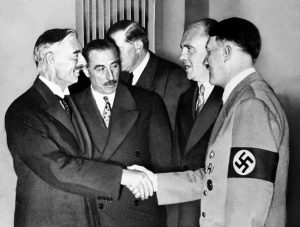
There is no such thing as neutrality when it comes to fascism and white supremacy. There is no such thing as a “moderate” position. You either work against fascism, or through inaction you encourage it to spread, and to commit atrocities.
So I ask all of you, are you ready to become anti-authoritarians?
[Crowd: YES!]Good! Then we have a rich history of resistance to guide us.
After the election, many people were shocked and disoriented. People asked, what do we do?
Anti-authoritarian movements, both historical and current, can help answer those questions. We can look at Nazi-occupied Europe, at Apartheid South Africa, at Turkey, and many other places. Their struggles tell us how to fight authoritarianism and win.
So I’m going to tell you five things that we should all be doing as anti-authoritarians.
Number 1: Organize cultures of resistance
The first thing to do is organize cultures of resistance. Anti-fascism is not a solo event, it’s a team sport. As anti-authoritarians, all of us here work together if we want to win.
Part of our job is to immunize people against authoritarians, to keep them from being recruited by fascists. The Nazis were able to win support from many parts of society, but some groups in Germany, like leftist social movements, were immune to Nazi recruitment.
Leftists, socialists, and anarchists organized against Nazism, held community events, theatre nights, public dinners, and so on. They were able provide people with a community and a way of understanding the world that emphasized fairness and equality, so that people didn’t fall prey to scapegoating and fascist propaganda. So that when the political establishment faltered, regular people had an alternative to the far right.
We should be doing that, too, because the bigger our movement is, the more effective it is, and the safer people feel to resist.
Number 2: Build solidarity
The second thing we must do is to build solidarity to avoid “divide and conquer”. To build bridges.
Fascists and authoritarians always use divide and conquer. They split the people into manageable segments that can be dealt with one by one. You know Martin Niemoller’s poem about the Nazis: “First they came for the socialists, and I did not speak out—because I was not a socialist. Then they came for the trade unionists, and I did not speak out…” And so on, and so on, until there was no one left.
But there was a sign at one of Women’s marches: “First they came for the Muslims, and we said not this time.”
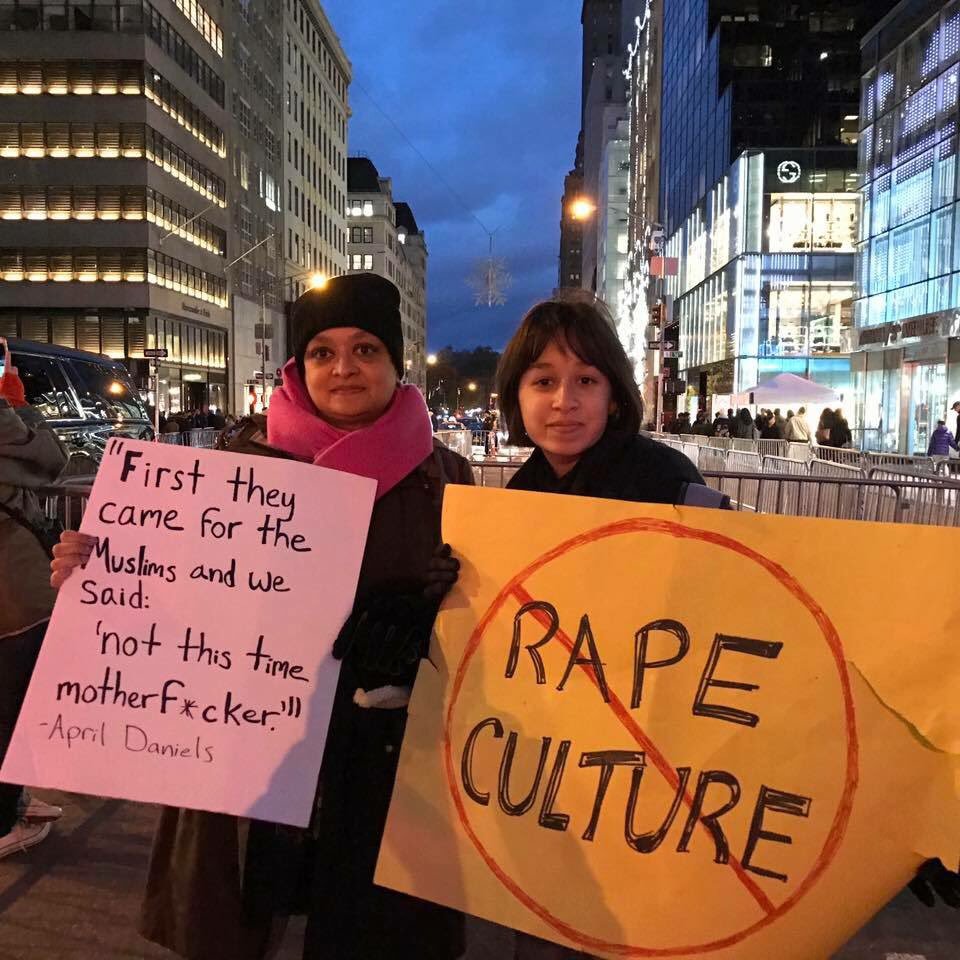
Effective movements, like Nelson Mandela’s ANC in South Africa, have brought together many different groups from across society, from feminists to labour unions, anti-racist organizers to socialists, religious resisters to people taking direct action.
Solidarity is essential. And there should be no by-standers, no spectators. We all have to join the fight against authoritarianism, the fight against white supremacy.
That’s why I’m glad to see many new faces in the crowd tonight. Welcome. I’m happy that you’re here. And I hope you’ll continue to become more involved.
And to the seasoned organizers, I hope that you will also welcome these people so that we can build stronger movements.
Working together also means genuinely listening to each other, not just papering over differences. We should work together, but we must continue to acknowledge that there are deep injustices in our society.
To build real solidarity, privileged people (myself included) have to listen to people who have more direct experiences of oppression.
Which leads to our third task:
Number 3: Listen to the people who have been fighting all along.
Listen to the people who have been fighting all along.

There were anti-Fascist organizers throughout Europe in the 1920s and 1930s, but they were considered by the respectable and established powers to be “too radical.” Too combative. Too noisy.
In the late 1930s, Fascists backed a military coup in Spain; it was a “dry run” for the invasion of the rest of Europe. Volunteer anti-authoritarians from around the world—especially anarchists, socialists, and communists—traveled to Spain at their own expense to take up arms to stop the violent spread of Fascism.
What did the government of Canada do at the time? Did they send support to these resisters? No. Did they welcome refugees? No. While regular people around world organized anti-Nazi boycotts as early as 1933, the Allied governments didn’t block trade with Germany until Nazi troops were already marching across Europe.
The Prime Minister of Canada, William Lyon Mackenzie King, wrote admiringly about Mussolini in his diary, and bought up all the land around his house so Jews couldn’t move into the neighbourhood.
Consider, also, what happened in Denmark after it was invaded by the Nazis. You may have heard the story that after the Nazis ordered all Jews in Denmark to wear the yellow star, the King of Denmark himself rode out wearing a yellow star on his sleeve. And so the Jews were saved.
It’s a great story, but it’s completely wrong. What actually happened was that thousands of political activists and regular people in Denmark organized underground resistance networks to smuggle Jews out of the country, often to Sweden in tiny fishing boats. Some people took enormous risks, others funded the resistance. Some networks posed as innocuous community groups, like sewing clubs. It is thanks to those people, and not to a King, that over 99% of Danish Jews survived the Holocaust.
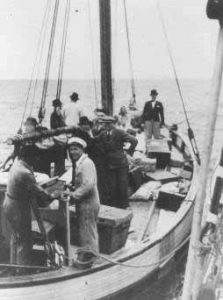
The fight against authoritarianism is not led by Prime Ministers or Kings. It does not come from the people with the most privilege.
No, the fight against authoritarianism has often bee
n led by the people with the least power, with the least privilege. The people who those in power think are too noisy. The people who are not worried about being “respectable” to the authorities. Those are the people who resist authoritarianism, who understand what has been happening all long, and who have had the courage to act. Governments may follow along, but people must lead.
So listen to the grassroots organizers in this room, who have been fighting to bring in refugees, fighting against racist police violence, and against pipelines on indigenous land. And recognize that for indigenous people, for many people of colour, the Canadian state has often been an authoritarian state. Dedicated activists have been fighting against that for a very long time.
Number 4: Support people on the front lines
Which brings me to our fourth task: we must support people on the front lines.
Not all people in a resistance movement have to be on the front lines. In fact, only a small percentage of people are. It’s the job of everyone else to support the people on the front lines, whether they are refugees trying to get to safety, or combatants struggling against the authoritarians.
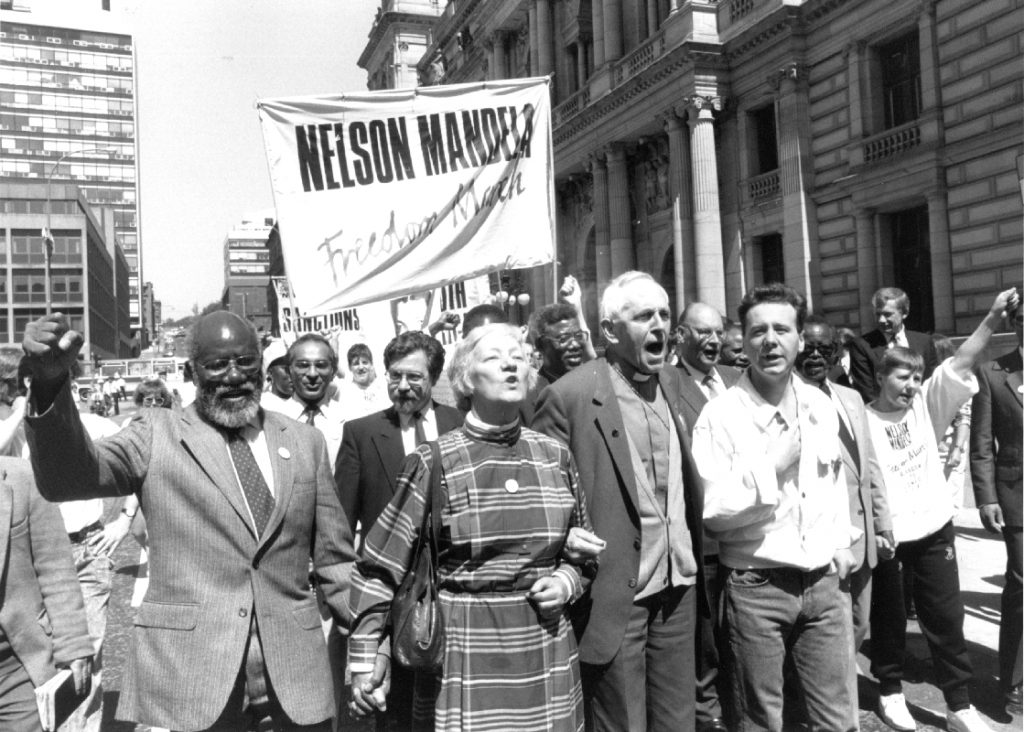
The Struggle against Apartheid in South Africa succeeded because it was supported by groups around the world. The organizers in the civil rights movement who were arrested for sitting at the front of the bus or eating at the “wrong” lunch counter could take that risk because they were supported by their community. People at Standing Rock have been able to endure for the same reason.
We must support people here and abroad who are fighting against racism, against misogyny, against pipelines, and many other things. We must support the kinds of community groups that are joining us here tonight, whether we join them as organizers, or attend their events, or give them donations.
So far, that gives us four tasks for anti-authoritarians: Organize cultures of resistance, build solidarity, listen to resisters, and support people on the front lines.
I’ll come back to the fifth task in a minute, but first another question: What does all of this mean for us, in Canada, specifically?
Part of the answer is that we must look beyond Trump. Trump is horrible, yes, but if we speak only about prominent individuals, we risk overlooking the larger cultural and political movements that thrust them into power.
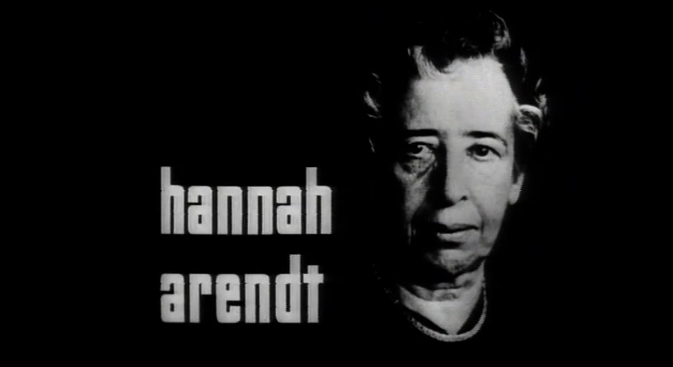
The anti-Fascist scholar Hannah Arendt came to understand that the scariest thing about fascism is that most of its rank-and-file participants are not monsters, they’re psychologically normal. They aren’t missing a part of their brain, they’re just regular human beings. Hannah Arendt called it “the banality of evil.”
So part of our job here in Canada is to keep what is happening now—the attacks on immigrants, on women, on Muslims—from being normalized. We must keep evil from becoming banal.
At the same time, we must recognize the places where evil has already become normalized, where it has become banal.
And unquestionably, one of these normalized evils is Canada’s treatment of indigenous people. Canada’s treatment of indigenous peoples has inspired authoritarian states. Apartheid in South Africa was modeled after the reservation system in Canada. And Hitler often spoke of wanting to do in Europe what the “Nordic races” had done in North America. To push aside and erase the “non-Aryan” people and take their land. He saw genocide in North America as a model for the Nazi Holocaust.
Even before Trump, we in Canada have a tendency to look at America and think “oh, we’re so much better, we’re so much more progressive.” But there are areas where Trump’s policy and Trudeau’s policy overlap in alarming ways, including on oil pipelines.
Both Trump and Trudeau are moving for significant expansion of oil pipelines and the tar sands, which means further repression of indigenous people. We may have very different feelings about Trump and Trudeau, but oil executives love both of them. It’s a bit of a good-cop-bad-cop routine. And frankly, Trump and Trudeau are bringing us to the same place: runaway climate change that will create hundreds of millions of additional refugees, and eventually render much of the planet uninhabitable.
We must put our bodies in the way of further pipeline expansion. Indigenous people have led the way on this for decades. But all settlers in Canada must must now share the same fight as indigenous people, because we share the same fate. On climate change and pipelines, we will live or die together.
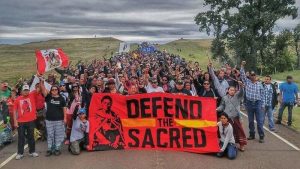
Number 5: Take Action
Which brings us to our fifth and final task as anti-authoritarians: to take action. To stand up and fight against the evil things that we have come face to face with.
We have to do that collectively, and in a way that makes use of our own skills and our particular situations. Authoritarians don’t care what we think, which is why our only leverage comes from actively interfering with their schemes, by targeting their weak points, and by costing them money.
Protests this weekend against the refugee ban came very close to shutting down some airports, which was a promising start. Economic disruption is an area where the people have far more leverage than in Congress or in Parliament. That’s why economic disruption, divestment, and boycotts were used by people fighting Apartheid in South Africa, and many other places.
We need to approach the corporations that work with authoritarians in the same way. Oil companies and authoritarians have teamed up for decades around the world. I think in Canada a lot of our anti-authoritarian efforts must focus on indigenous solidarity and pipelines, and to follow the model of indigenous people at Standing Rock and Unist’ot’en.
As for the fascists: There’s only one thing that can stop them now. Us. Us being brave, being organized, and working together. Standing up and fighting back.
Anti-authoritarians can win, but it takes work and commitment. And will take more than marching and carrying a sign. One of the reasons Trump has done so many terrible things in the first week is because he thinks that people will get tired of marching, tired of protesting, and that he can then go on and do whatever he wants. So let’s work together and prove him wrong.
Let’s show that we refuse to be intimidated. We refuse to be terrorized into silence and submission. That we will stand up, and fight injustice.
To conclude, I want to make sure that all the new people here know an old chant. This is call and response. I’ll ask you question, and the answer is, “stand up, fight back”.
Refugees under attack, what do we do?
[STAND UP FIGHT BACK]Indigenous people under attack, what do we do?
[STAND UP FIGHT BACK]Women under attack, we do we do?
[STAND UP FIGHT BACK]Planet Earth under attack, what do we do?
[STAND UP FIGHT BACK]Thank you.
